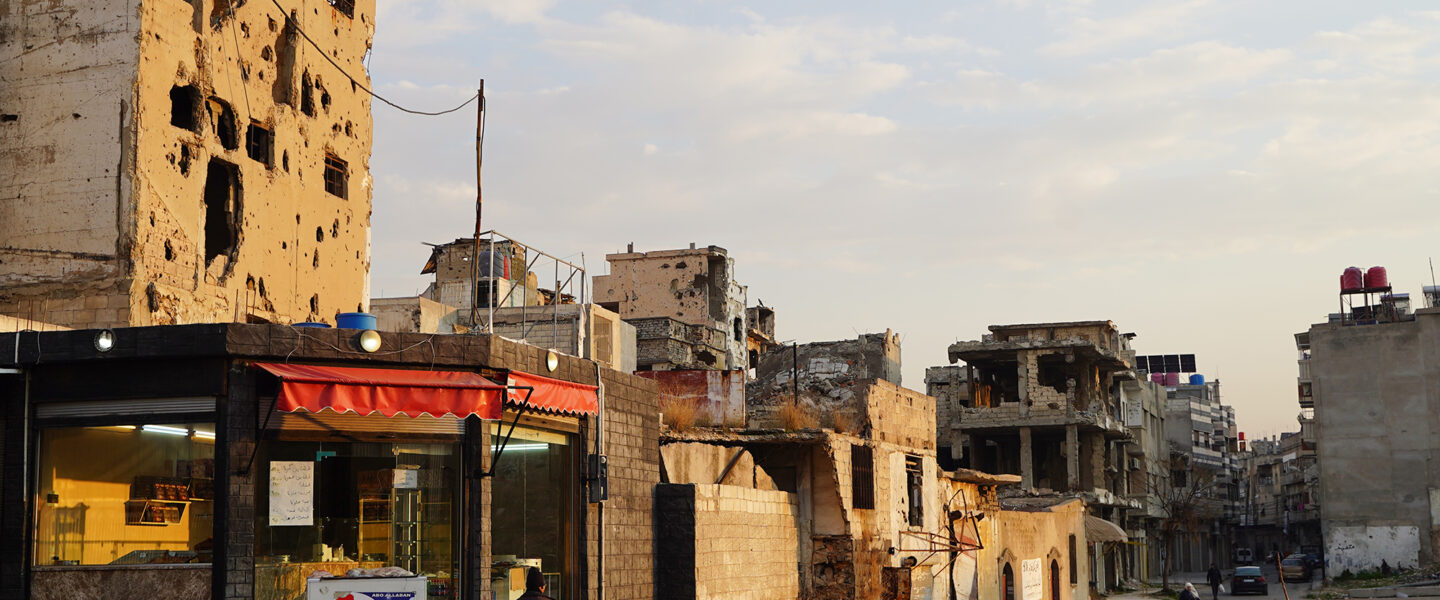Between Fear and Reconciliation: Syrian Christians Contemplate Their Future
Christians in Syria worry that recent attacks against religious minorities may affect them.
|
Listen To This Story
|
HOMS, SYRIA — Once nicknamed the capital of the revolution, Homs became a martyr to Syria’s civil war. Located between Damascus and Aleppo, it was besieged from 2012 to 2014 by Bashar al-Assad’s forces and Russian aviation. Today, it is little more than ruins, inhabited by a sparse population of survivors.
Fighters belonging to the group Hayat Tahrir al-Sham (HTS) were instrumental in overthrowing the former regime. This ended 52 years of rule by the Assad dynasty, which had favored the Alawite Muslim minority. Today, HTS is struggling to maintain its leadership over a mixed coalition of militia groups, only nominally under its control.
At the base of Homs’s central clock tower, armed men take turns posing for photos, one finger pointed skyward. Flags of the Syrian Republic flutter on freshly captured administrative buildings, while old posters of Assad lie underfoot, trampled by passing pedestrians without a second glance.
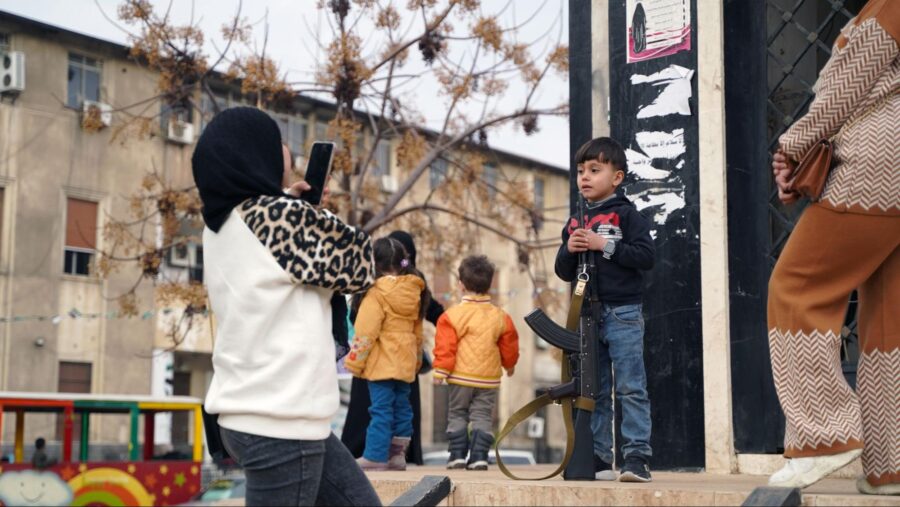
While most Syrians were glad to see Assad go, Christians in Homs’s Hamidiyeh neighborhood are apprehensive about the future. Before the war, 10 percent of Hom’s population — roughly 125,000 people — were Christians. Most celebrated the regime’s fall; many remain cautious about the new government in Damascus. For now, however, the Christians insist the focus should be on celebration.
“The liberation I felt on December 8 was like a rebirth, both for me and for the Syrian people as a whole,” says Monsignor Jacques Mourad, the Syriac archbishop of Homs. “For the first time in my life, I truly experienced what freedom feels like. No one expected the regime to fall. It was a beautiful and incredible surprise.”
Sister Rania Hanna, also a Syriac Christian, shared that sense of relief when Assad fled. For decades, the Assad regime posed as a protector of minorities, including Christians, in a region plagued by communal instability. However, according to Sister Rania, in reality “the Assad family used Christians as hostages” and this supposed protection was nothing more than ”a façade used to justify their war against the Syrian people.” She continued:
The truth is, most Christians opposed Assad, or at least refused to take sides in the war. Many of us fought against the regime. Countless Christians paid the price in blood, dying under Russian bombs or in the regime’s prisons. Ten years after the siege ended, nothing was ever rebuilt. The government never gave us a penny. Everything we’ve rebuilt is thanks to Christian charity.
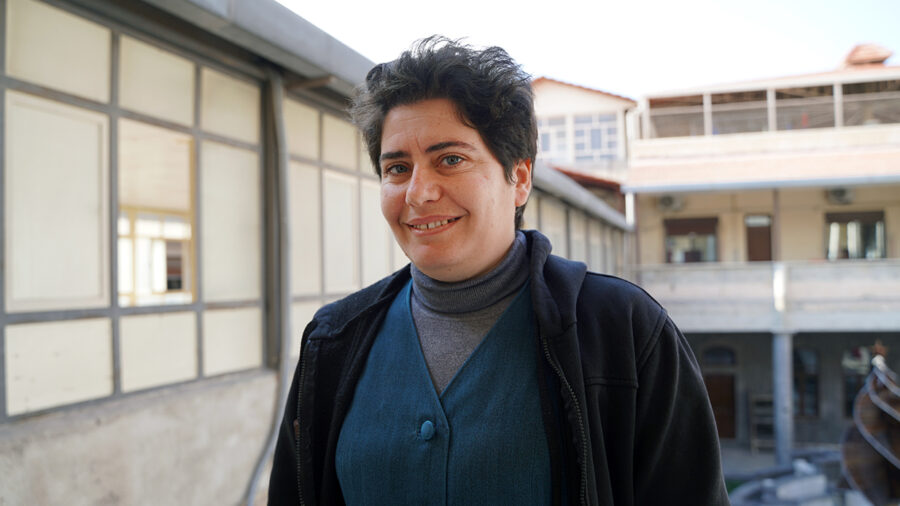
Fear of Tomorrow
In his office in the Hamidiyeh quarter, Monsignor Mourad, round-faced and smiling, warms himself by a stove as he pours coffee into small porcelain cups. He recounts:
Initially, when HTS launched their offensive, Christians were afraid that a new war might break out. As a result, many left the city. But what’s touching is that, the day after the liberation, they all returned to Homs, because, for the first time in a long while, they felt safe.
A former ISIS hostage, Mourad takes Syrian Christian concerns about HTS seriously. With its Islamist past, the organization is still classified as a terrorist organization by both the European Union and the United States.
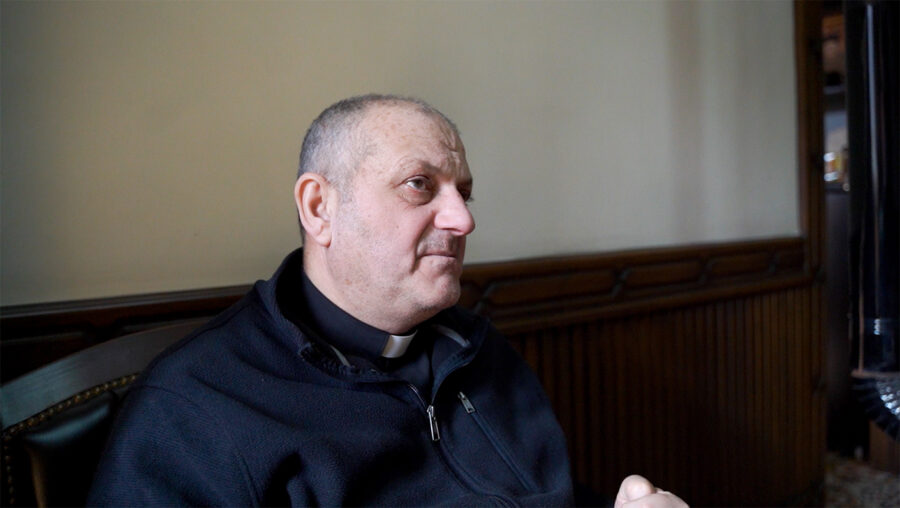
Mourad nevertheless remains optimistic. “There are no real acts of violence against Christians,” he says. “Ahmed al-Sharaa [the president of Syria] has met with us and assured us that he will do everything to guarantee our religious and cultural freedoms.”
Sister Rania, who also approves of al-Sharaa, is mainly concerned about his capacity to control the various factions under his command, explaining:
There are many different groups within HTS. Some are more religious than others. This is why many of us fear the potential Islamization of Syria. For instance, armed men sometimes ask women to wear veils or sit separately from men on buses. Many Christians say that if the government radicalizes and becomes fanatical, they will have no choice but to leave Syria.
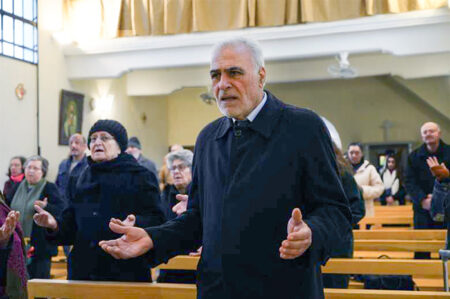
Mourad hopes the new government will protect Christians and other minorities alike. “If I am protected but my neighbor is not at peace, it cannot work,” he says. “We want a country where everyone lives in peace because we have seen far too much bloodshed.”
Building Bridges
In the courtyard of a Jesuit church in central Homs, about 30 people listen attentively to representatives of the three main faiths: Christian, Alawite, and Sunni.
After decades of divisive politics, Syria has been left fractured and seething since the fall of Assad’s regime. Matah al-Hussein, one of the gathering’s participants, belongs to the Alawite minority. The Assad family hails from this heterodox branch of Shia Islam, and its regime’s architecture reflected its sectarian sensibilities. The young art student explains:
The government made sure everyone stayed within their own neighborhoods and didn’t talk to each other. The 14 years of war only deepened this divide. For example, the Hamidiyeh quarter is very Christian, but if you walk 10 minutes, you reach an Alawite neighborhood, and each community has its own armed group for defense.
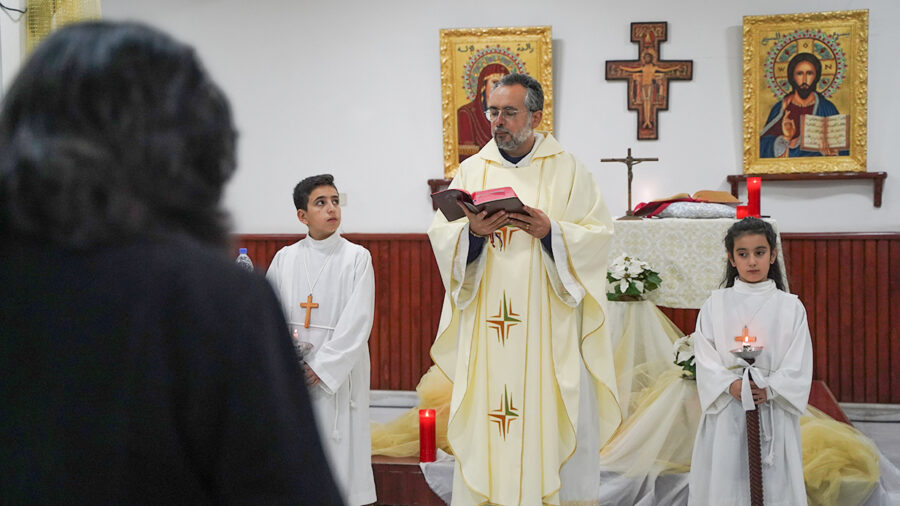
Father Tony Homsy, one of the event’s organizers, is even more worried about the Alawites’ future than that of the Christians:
The Sunnis were the [Assad] regime’s first victims. Understandably, many of them want revenge on the Alawites, whom they associate, sometimes wrongly, with Assad’s regime. As Syrian Christians, our duty is to be a bridge of reconciliation between the two communities.
Al-Hussein, who welcomed the event with great hope, believes such an initiative is crucial to Syria’s future:
Today, we must break this cycle of violence by encouraging communities to meet and realize that each of us is a human being like any other.
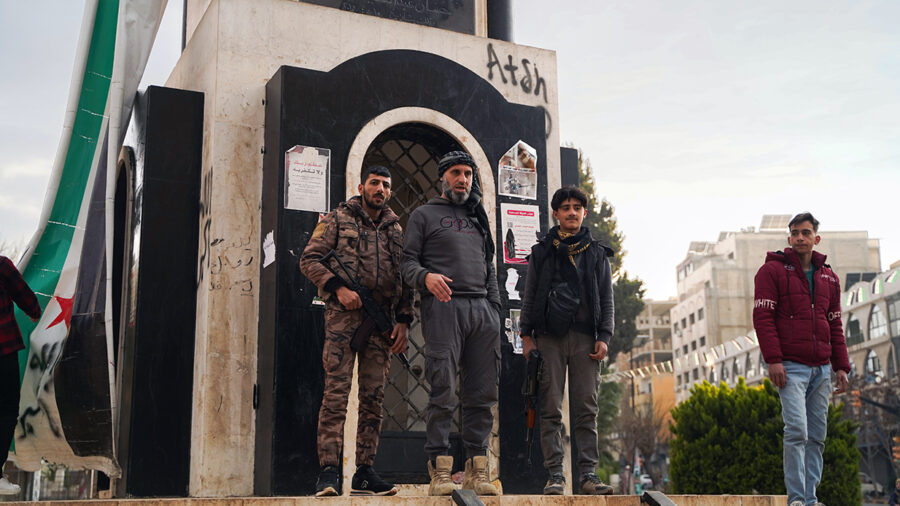
Yet Father Tony acknowledges the enormity of the task ahead. With a gentle look, framed by small round glasses, he admits that since the regime’s fall, some members of HTS, who are predominantly Sunni, have already targeted the Alawite minority. He concludes:
This is why we must engage in dialogue, rediscover who we are, and understand that we have far more in common than we think. However, the real challenge, in my opinion, is to find a way to forgive without erasing the past — remaining truthful while spreading a message of love and brotherhood. This message of peace and unity is precisely what Syrian Christians can offer.
